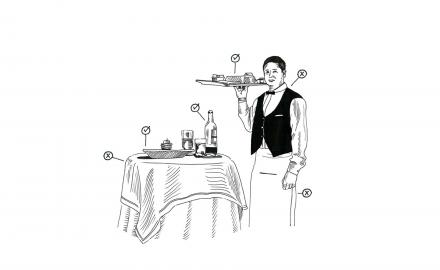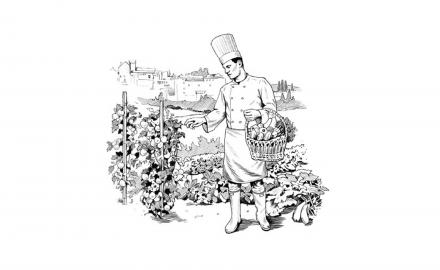N°6 Towards a responsible restaurant industry
WHAT HAS BEEN YOUR CAREER THUS FAR?
I graduated from the Paul Bocuse Institut in 2006. Then in France in 2011, I created WDK Conseil aiming to support Chefs and independent restaurant owners in their creative and development projects. The L’R Durable movement was born at the end of 2013. Its vocation is to mobilise different industry actors looking to commit to it and put them through the right interlocutors.
WHAT IS THE AIM OF THE L’R DURABLE MOVEMENT?
L’R Durable mobilises the different actors wishing to commit and puts them in touch with the right interlocutors. We also value professionals who have already initiated an evolution process towards a sustainable restaurant. Finally, we organise events throughout France to raise awareness on the different themes of the responsible restaurant industry.
HOW WOULD YOU DEFINE THE CONCEPT OF “RESPONSIBLE RESTAURANT INDUSTRY”?
The responsible restaurant industry is the concrete application of sustainable development values in the restaurant sector. In practice, it is about limiting the environmental impact of the establishment, to act positively on life and work conditions and develop a fair and viable economic model. The process is progressive. Even the most modest establishments can commit to it by starting to do simple and free or inexpensive actions, which also allows to create savings. With those savings, we can finance new projects and commit to a virtuous circle.
WHICH LEVERS CAN WE PUT FORWARD FOR A RESPONSIBLE RESTAURANT INDUSTRY?
Each establishment will choose its own levers depending on its identity and values. An Asian restaurant will obviously not have 100% local suppliers but will be able to work on product referencing using fair trade. Environmentally speaking, we can act on the management of water, energy, waste, and biodiversity protection. On a human level, we will work to improve working conditions, better grasp reinsertion, accessibility and solidarity issues. With better management, we retain a team and thus we limit recruiting and training fees and, in a bullet payment, we offer the client better quality service. Finally, we will act on the economy—third pillar of sustainable development—by reinforcing the local economic tissue thanks to employment and locavorism by promoting fair trade and ethic financing…
HOW CAN WE FIGHT DIETARY STANDARDISATION?
We must free ourselves of constraints and reappropriate the ingredients we use, (re)learn to play with products to make them more attractive and less monotonous. This can be done with a great knowledge of the product. Diversifying producers is also important because each of them bring a different touch to the product.
HOW CAN WE MEET NATURALITY’S CHALLENGE?
Naturality goes through honouring vegetables in the plate and the respect of animals for a reasonable consumption of meat and fish. We need to relearn how nature works and take our time to listen to it. To create a seasonal menu is mandatory for a restaurant owner while knowing that seasonality can vary from year to year depending on several criteria (cultivation method, sunshine…). The nutritional quality of products is also an essential element to consider in this quest for naturality. An off-ground product will naturally be less rich than a product which grew in the ground.
IN YOUR OPINION, WHAT DOES TOMORROW’S RESTAURANT INDUSTRY LOOK LIKE?
Tomorrow’s restaurant industry is bound to be responsible. It is a foregone conclusion especially as some products are disappearing. We must rethink our relationship to the product and to the human being, not to systematically look for the “least expensive”. Tomorrow’s restaurant industry will keep on being eclectic, rich, and different.



